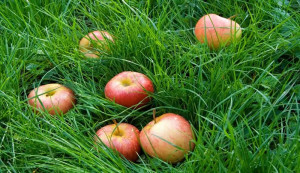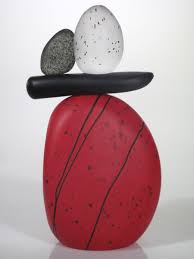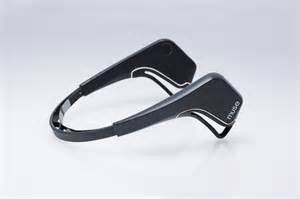On Knowing You Can Bear It (In the Time of Coronavirus)
There is a story in Jack Kornfield’s wonderful book, The Wise Heart, that reminds us of what kindness and compassion can do for us in the immediacy of illness, uncertainty and fear, as individuals and collectively as a human family:
 JK: On one occasion I was sick with what was probably malaria, lying in my hut, feverish and wretched. I had received medicine but it was slow in taking effect. Ajahn Chah came to visit me. “Sick and feverish, huh?” he asked. “Yes,” I replied weakly. “It’s painful all over, isn’t it?” I nodded. “Yes, it’s suffering alright.” He paused. “Here. This is where we have to practice. Not just sitting in the meditation hall. It’s hard. All the body and mind torments.” He waited for a while, then he looked at me with the warmth of a kind grandfather. “You can bear it, you know. You can do it.” I felt that he was fully there with me, that he knew my pain from his own hard struggles. It took some time for the sickness to pass, but his simple kindness made the situation bearable. His compassion gave me courage and helped me find my own freedom in the midst of hardship.
JK: On one occasion I was sick with what was probably malaria, lying in my hut, feverish and wretched. I had received medicine but it was slow in taking effect. Ajahn Chah came to visit me. “Sick and feverish, huh?” he asked. “Yes,” I replied weakly. “It’s painful all over, isn’t it?” I nodded. “Yes, it’s suffering alright.” He paused. “Here. This is where we have to practice. Not just sitting in the meditation hall. It’s hard. All the body and mind torments.” He waited for a while, then he looked at me with the warmth of a kind grandfather. “You can bear it, you know. You can do it.” I felt that he was fully there with me, that he knew my pain from his own hard struggles. It took some time for the sickness to pass, but his simple kindness made the situation bearable. His compassion gave me courage and helped me find my own freedom in the midst of hardship.
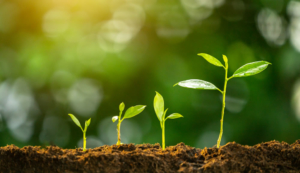 Much of my own teaching centers around guided meditations, the application of mindfulness, practices of personal development, all towards the aims of optimal well-being, increased focus and performance at work and reducing our day to day stress. These are all honorable and important intentions for the quality of our lives. I feel privileged to be able to do it.
Much of my own teaching centers around guided meditations, the application of mindfulness, practices of personal development, all towards the aims of optimal well-being, increased focus and performance at work and reducing our day to day stress. These are all honorable and important intentions for the quality of our lives. I feel privileged to be able to do it.
AND what drew me to mindfulness so very long ago was its powerful antidote to fear and suffering and trauma, moments like these- when any escape is a mirage and avoiding reality for something more palatable is not only dangerous but sometimes lethal.
Mindfulness as part of an overarching philosophy of our human suffering and how to ease that suffering has its underpinnings in the teaching of compassion as our very human nature. Mindfulness without embodied kindness lacks the power to sustain our spirit when it tires.
 As the poet Naomi Shihab Nye writes: “Before you know what kindness really is you must lose things/feel the future dissolve in a moment like salt in a weakened broth. What you held in your hand, what you counted and carefully saved, all this must go so you know how desolate the landscape can be between the the regions of kindness…then it is only kindness that makes sense any more.
As the poet Naomi Shihab Nye writes: “Before you know what kindness really is you must lose things/feel the future dissolve in a moment like salt in a weakened broth. What you held in your hand, what you counted and carefully saved, all this must go so you know how desolate the landscape can be between the the regions of kindness…then it is only kindness that makes sense any more.
 The answer say the sages and those who have fought the hard fight (as Paulo Coehlo likes to call it) is kindness. Kindness is a tender quality of being with unbreakable roots. You can bear it. You are being held in your own heart, cared for by the stranger who is here to make you well and sharing the fear among us with friends and family, dividing it up and breaking it into more manageable bites.
The answer say the sages and those who have fought the hard fight (as Paulo Coehlo likes to call it) is kindness. Kindness is a tender quality of being with unbreakable roots. You can bear it. You are being held in your own heart, cared for by the stranger who is here to make you well and sharing the fear among us with friends and family, dividing it up and breaking it into more manageable bites.
Kindness is the ‘com’ part of compassion. Being with the suffering- your own and that of others, with gentleness and a sincere desire to help reminds us of our resilient nature and the indomitability of the human spirit.

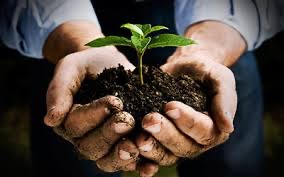 Leading an Authentic Life doesn’t mean spouting your ‘truth’ every time there appears an opening. It’s not the wisest move to be habitually giving your opinions at work or anywhere else for that matter. Yes, honesty matters. And what we are thinking may or may not be the arbiter of truth-ours or anyone else’s. Living with authenticity is different than this. It means to live a life that is genuine and principled.
Leading an Authentic Life doesn’t mean spouting your ‘truth’ every time there appears an opening. It’s not the wisest move to be habitually giving your opinions at work or anywhere else for that matter. Yes, honesty matters. And what we are thinking may or may not be the arbiter of truth-ours or anyone else’s. Living with authenticity is different than this. It means to live a life that is genuine and principled. A large part of living an authentic life involves being aware of your ability to chart your own course, choosing wisely the activities of your day to mirror your intentions and goals. While many things happen each day that we cannot control- we can choose our actions.
A large part of living an authentic life involves being aware of your ability to chart your own course, choosing wisely the activities of your day to mirror your intentions and goals. While many things happen each day that we cannot control- we can choose our actions.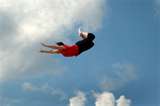 Don’t be too deliberate. Without this seeming like a completely contradictory message, consider how you can be intentional in your behaviors without over analyzing and over thinking everything. Too much opinion polling and second guessing in our lives is sometimes called “analysis paralysis.” Deep down, there is an intuitive understanding of who you are as a person. Trust yourself.
Don’t be too deliberate. Without this seeming like a completely contradictory message, consider how you can be intentional in your behaviors without over analyzing and over thinking everything. Too much opinion polling and second guessing in our lives is sometimes called “analysis paralysis.” Deep down, there is an intuitive understanding of who you are as a person. Trust yourself.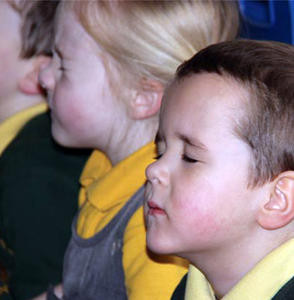 When you are truly connected to the present moment, there is less attachment to needing certain outcomes or trying to control the way things are. It puts things in perspective and increases connection with the whole of life.
When you are truly connected to the present moment, there is less attachment to needing certain outcomes or trying to control the way things are. It puts things in perspective and increases connection with the whole of life.
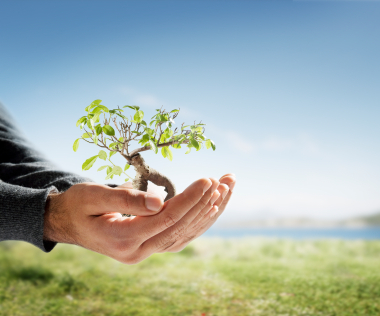 “We do not learn from experience…we learn from reflecting on experience.”- John Dewey
“We do not learn from experience…we learn from reflecting on experience.”- John Dewey

